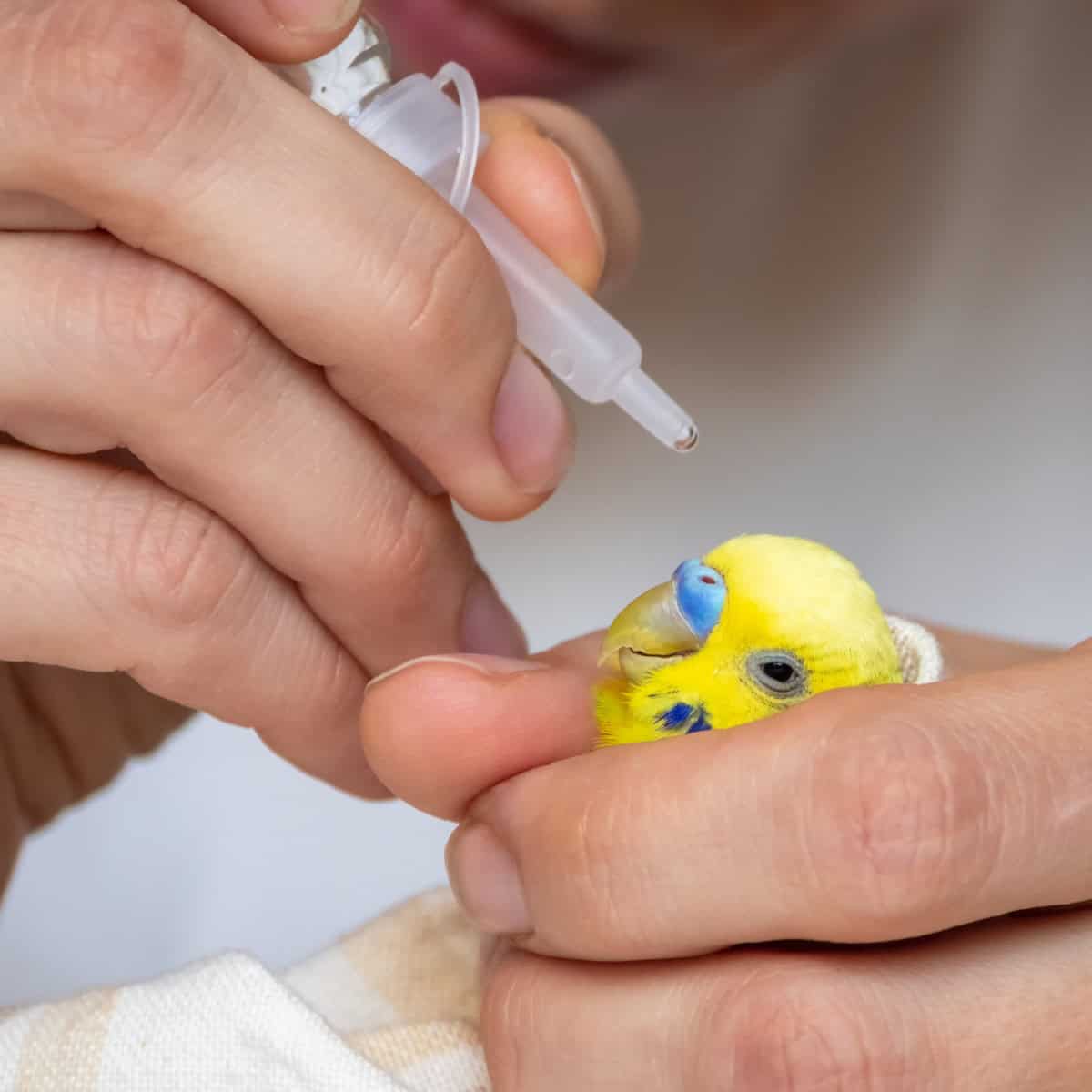Last Updated on by Mitch Rezman
Have you ever wondered how birds like parrots and parakeets stay healthy and energetic?
Just like people, birds need a good balance of nutrients to keep their bodies running smoothly.
One super important thing they need is healthy fats, called lipids, in their bodies. But sometimes, things can go wrong with how their bodies handle these fats, leading to health problems. Let’s break it down and learn more about this!
What Is Lipid Metabolism?
Lipid metabolism is how a bird’s body uses fats. Fats give energy to birds, help build cells, and keep their feathers shiny and strong. But if there’s too much or too little fat in their blood, they can get sick.
For parrots and parakeets (also called psittacine birds), problems with fat can cause diseases like:
- Dyslipidemia (too much fat in the blood).
- Fatty Liver Disease (the liver gets clogged with fat, making it hard to work).
- Atherosclerosis (when blood vessels get blocked with fat, causing heart problems).
What Happens When Things Go Wrong?
When parrots and parakeets eat the wrong kinds of food or their bodies don’t handle fats well, it can lead to serious health problems.
Scientists study these birds to figure out how to help them stay healthy. Let’s dive into some cool studies to learn more!
Research on Parrots and Fatty Foods
Study #1: The High-Cholesterol Diet Experiment
In one study, scientists gave a group of Quaker parrots two different diets:
- High-cholesterol diet (lots of fatty stuff like seeds).
- High-fat diet (but with healthy fats).
What happened?
- The high-cholesterol diet made the parrots’ blood fill up with unhealthy fats, which can make them very sick.
- Surprisingly, the high-fat diet with healthier fats didn’t cause the same problems. This shows that not all fats are bad, and some are even important for their health!
Study #2: Can Parrots Take Cholesterol Medicine?
Have you heard of people taking medicines called statins to lower their cholesterol? Scientists tested two kinds of statins (atorvastatin and rosuvastatin) on Quaker parrots to see if they would help. But guess what? The medicine didn’t make much difference. The parrots didn’t show big changes in their blood fat levels. This means that parrots might need different types of medicine or higher doses than humans to treat fat problems.
Study #3: A Virus and Fat Problems in Parakeets
Another study looked at Red-crowned Parakeets that had a virus called psittacine adenovirus 2 (PsAdV-2). Some of these birds developed a condition called xanthogranulomatosis, where weird yellow lumps form in their bodies because of fat problems. Scientists think the virus might make their fat problems worse, but they need to study this more to know for sure.
Why Does This Matter?
Parrots and parakeets are popular pets, and they also live in the wild. Understanding how their bodies handle fats can help people:
- Make better diets for pet birds.
- Treat diseases caused by too much fat.
- Protect wild birds from getting sick.
Simple Tips to Keep Pet Birds Healthy
If you have a parrot or parakeet, here’s what you can do to help them stay healthy:
- Feed them a balanced diet. Include fruits, veggies, and special bird pellets. Avoid giving them too many seeds, which can be fatty.
- Limit fatty treats. A little bit of nuts or seeds is okay, but too much can lead to fat problems.
- Provide exercise. Let them fly or play outside their cage to stay active and burn off extra energy.
- Visit the vet. Regular check-ups can catch problems early.
What Do These Fancy Words Mean?
Here are some of the tricky words explained in simple terms:
- Lipid metabolism: How birds use fats for energy and to stay healthy.
- Dyslipidemia: When there’s too much fat in the blood, which can make birds sick.
- Xanthogranulomatosis: Weird lumps that form when fat builds up in the wrong places.
- Statins: Medicine that helps lower cholesterol in humans (but doesn’t work the same for parrots).
Why Are Scientists Studying This?
Birds are amazing creatures, and parrots and parakeets are some of the smartest and most colorful ones out there. By studying how they process fats, scientists can help birds live longer, happier lives—whether they’re in your home or flying in the wild. Plus, what we learn about birds could even help humans understand more about our own health!
Keeping parrots and parakeets healthy is all about balance: a balanced diet, plenty of exercise, and lots of love. So, the next time you see a parrot squawking or a parakeet chirping away, you’ll know just how important fats are to their health and happiness! ✨
Author Profile
Latest entries
 Feeding Exotic BirdsDecember 29, 2025How to Switch or Convert Your Bird From Seeds to Pellets: Real-Life Case Studies and Practical Guidance
Feeding Exotic BirdsDecember 29, 2025How to Switch or Convert Your Bird From Seeds to Pellets: Real-Life Case Studies and Practical Guidance Feeding Exotic BirdsDecember 16, 2025A Practical, Budget-Smart Guide to Feeding Birds Well
Feeding Exotic BirdsDecember 16, 2025A Practical, Budget-Smart Guide to Feeding Birds Well Bird EnviornmentsDecember 7, 2025Understanding Budgie Cage Bar Orientation: Myths, Realities & Practical Solutions for Vertical-Bar Bird Cages
Bird EnviornmentsDecember 7, 2025Understanding Budgie Cage Bar Orientation: Myths, Realities & Practical Solutions for Vertical-Bar Bird Cages Feeding Exotic BirdsDecember 5, 2025How Dr. T.J. Lafeber Rewrote the Future of Pet Bird Nutrition
Feeding Exotic BirdsDecember 5, 2025How Dr. T.J. Lafeber Rewrote the Future of Pet Bird Nutrition



